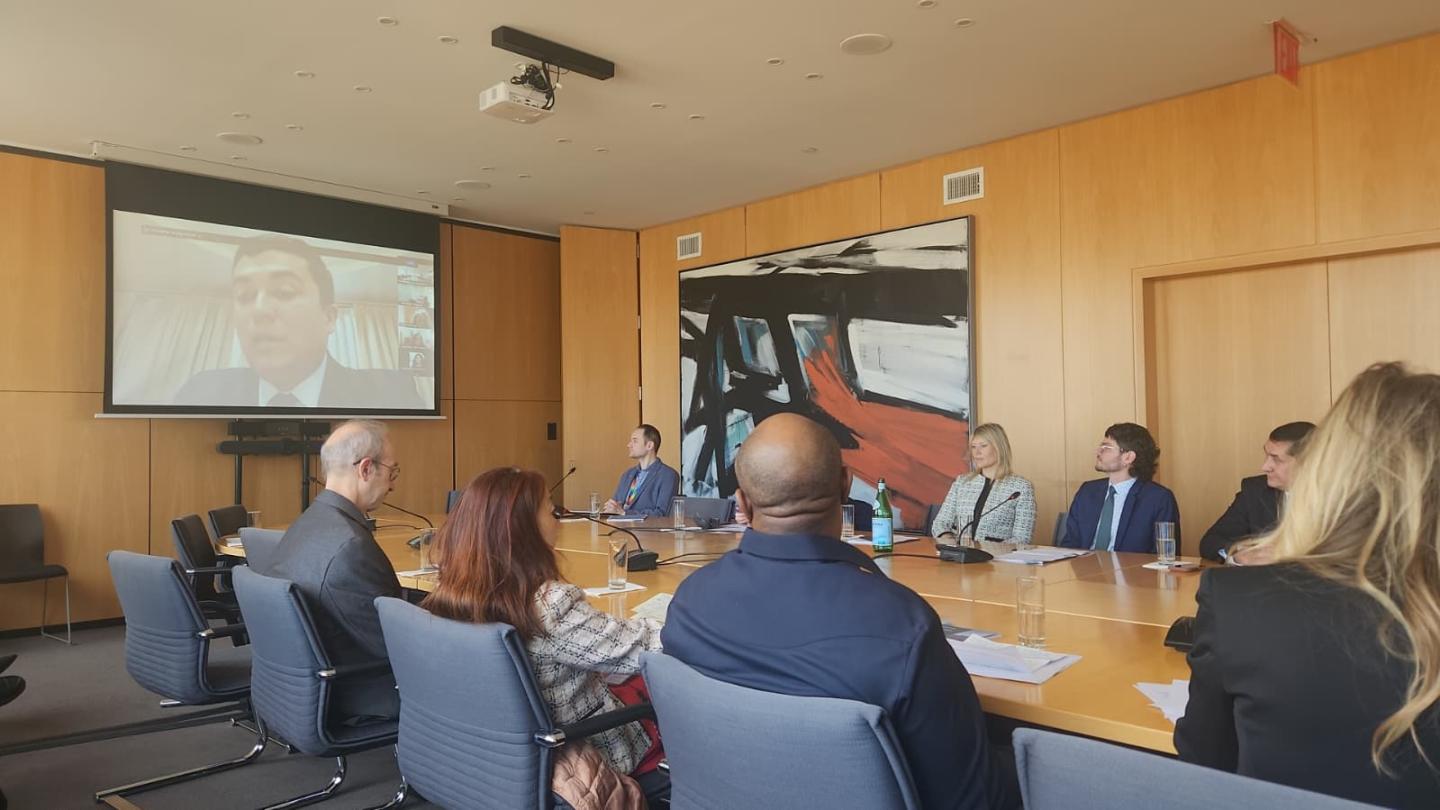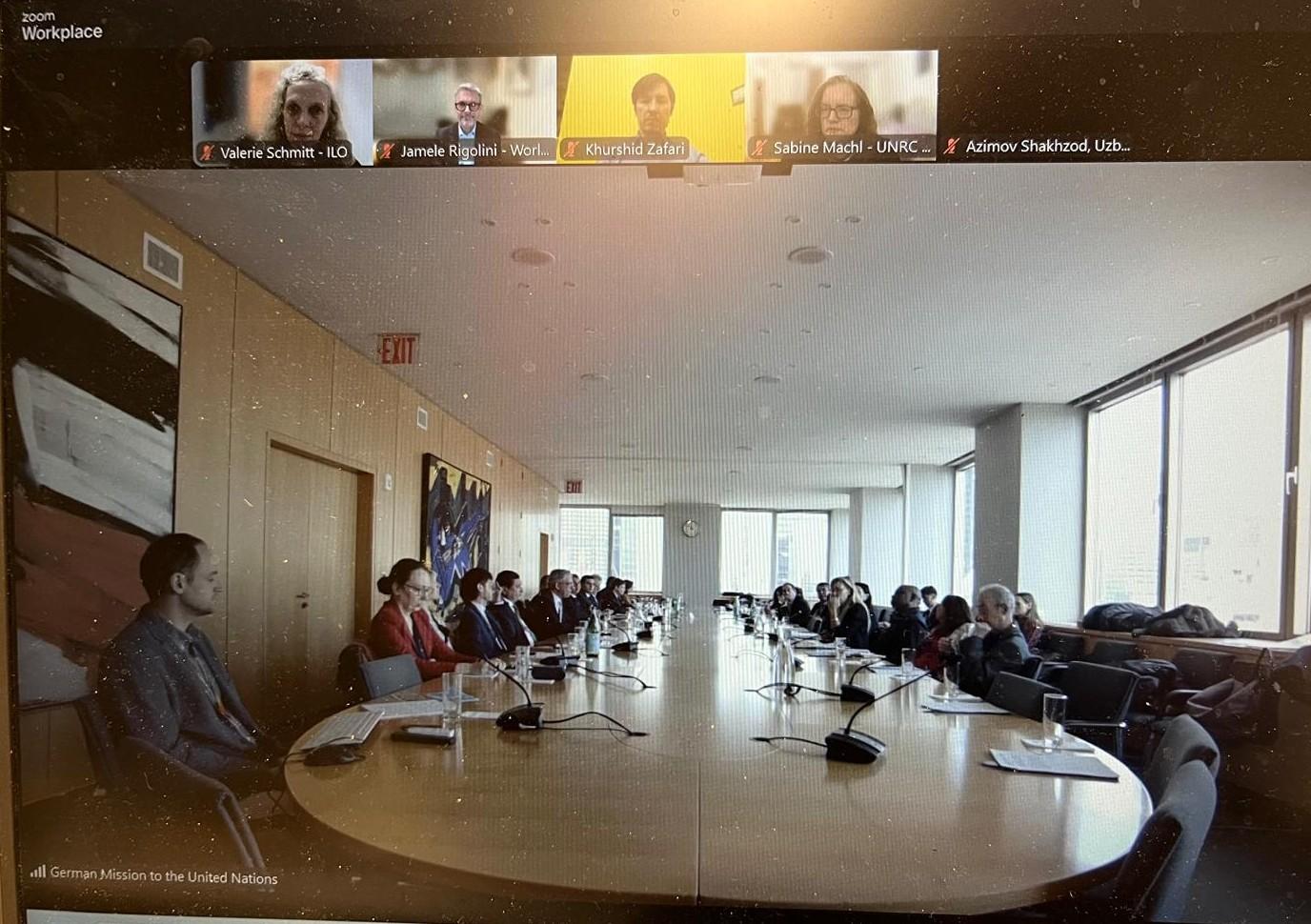New York - The Permanent Missions of Uzbekistan and Germany along with the Joint SDG Fund organized a deep dive session to share major progress updates on the Global Accelerator on Jobs and Social Protection for Just Transitions in Uzbekistan, highlighting formalization as one of the four priority pathways chosen by the country to accelerate the SDGs and leave no one behind.
The session, moderated by Ms. Lisa Kurbiel, Head - Joint SDG Fund, was an opportunity to explain the transformation that is taking place in Uzbekistan as part of the Global Accelerator with the Joint SDG Fund’s support. It also offered the Global Accelerator's pathfinder countries, the UN and the World Bank, the opportunity to reflect on what made this transformation possible.
H.E. Mr. Ricklef Beutin, German Ambassador to the UN, announced that his country had confirmed a new allocation of €5 million to the Joint SDG Fund in support of the Global Accelerator which is a “story of hope” that showed how strategic partnerships can support systemic solutions. H.E. Mr. Ulugbek Lapasov, Ambassador of Uzbekistan recalled the significant progress made by the country with the joint support of the United Nations and the World Bank within the framework of the Global Accelerator and reiterated that social protection is “the smartest investment that countries can make.”

Other speakers, including Mr. Alain Noudehou, Executive Director of the Multi-Partner Trust Fund Office and Mr. Fergal Mythen, Ambassador of Ireland to the UN, praised the added value of pooled funds such as the Joint SDG Fund, which enable a concrete contribution to the UN80 reform with greater coherence and efficiency.
Ms. Valerie Schmitt, Deputy Director, Universal Social Protection Department - ILO, identified three factors for the success of the Global Accelerator in countries such as Uzbekistan: it is supported at the highest levels of government and the UN; it promotes integrated approaches to social policies, their financing, and their implementation, and integration has a greater impact in addressing complex challenges such as informality; its transformative action also stems from the development of national roadmaps, which help build national consensus and ownership, and foster coherent technical and financial support by donors, UN and IFIs.
Mr. Khurshid Zafari, Director - Social Policy Lab, National Social Protection Agency under the President of the Republic of Uzbekistan, emphasized Uzbekistan's ambition to formalize 350,000 jobs and the importance of social insurance for “lifting people out of the shadow”. Formalization is one of the four pathways of the Global Accelerator roadmap together with inclusive transition, green transition and digital transition. “All these transitions should be just and leave no one behind,” he concluded.

Ms. Sabine Machl, United Nations Resident Coordinator in Uzbekistan, explained that the Global Accelerator is gaining real momentum, by supporting Uzbekistan in tackling informality: 40 per cent of the workforce is informal, with higher concentrations of informality in the construction sector, care economy, and among women and youth. She also emphasized that the UN Joint Programmes are delivering concrete results through implementing employment injury insurance, supporting care workers in accessing skills, decent jobs and social protection, and extending maternity protection to all private sector workers. She quantified the returns on investments of this coherent and sustainable shift towards formalization and universal social protection: “By formalizing 300,000 jobs the Global Accelerator will generate new tax revenues of about USD 200,000 per year. This was possible because we are working together in a coherent manner.”
Mr. Jamele Rigolini, Senior Advisor for Social Protection and Labor - World Bank, emphasized that the World Bank supports the Global Accelerator through the M-GA which puts UN/IFI collaboration and partnership in motion and helps bring together different and complementary expertise from the UN and the World Bank.
This session attracted significant interest from several donors. The Ambassador to ECOSOC from the Netherlands, Ms. Katja Lasseur, appreciated having access to concrete evidence that the Joint SDG Fund is delivering tangible results on the ground and helps mobilize domestic resources for development through formalization and other systemic transformations. “We are striving to do more with less”, concluded Ms. Lisa Kurbiel.
Learn more about the Joint SDG Fund's support for Uzbekistan's work here.
Click here to read the Transforming Lives Through Joint SDG Fund Support in Uzbekistan booklet.